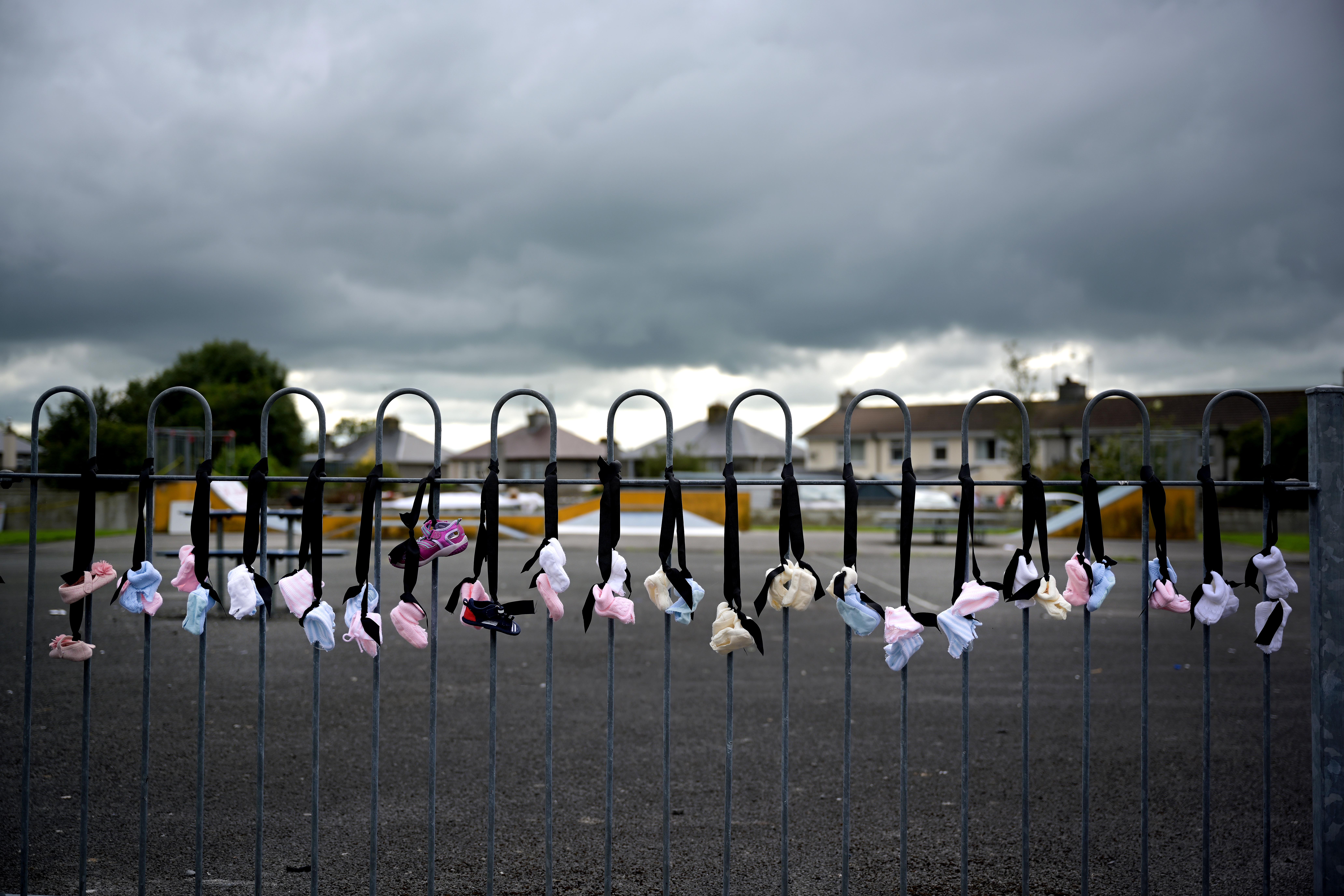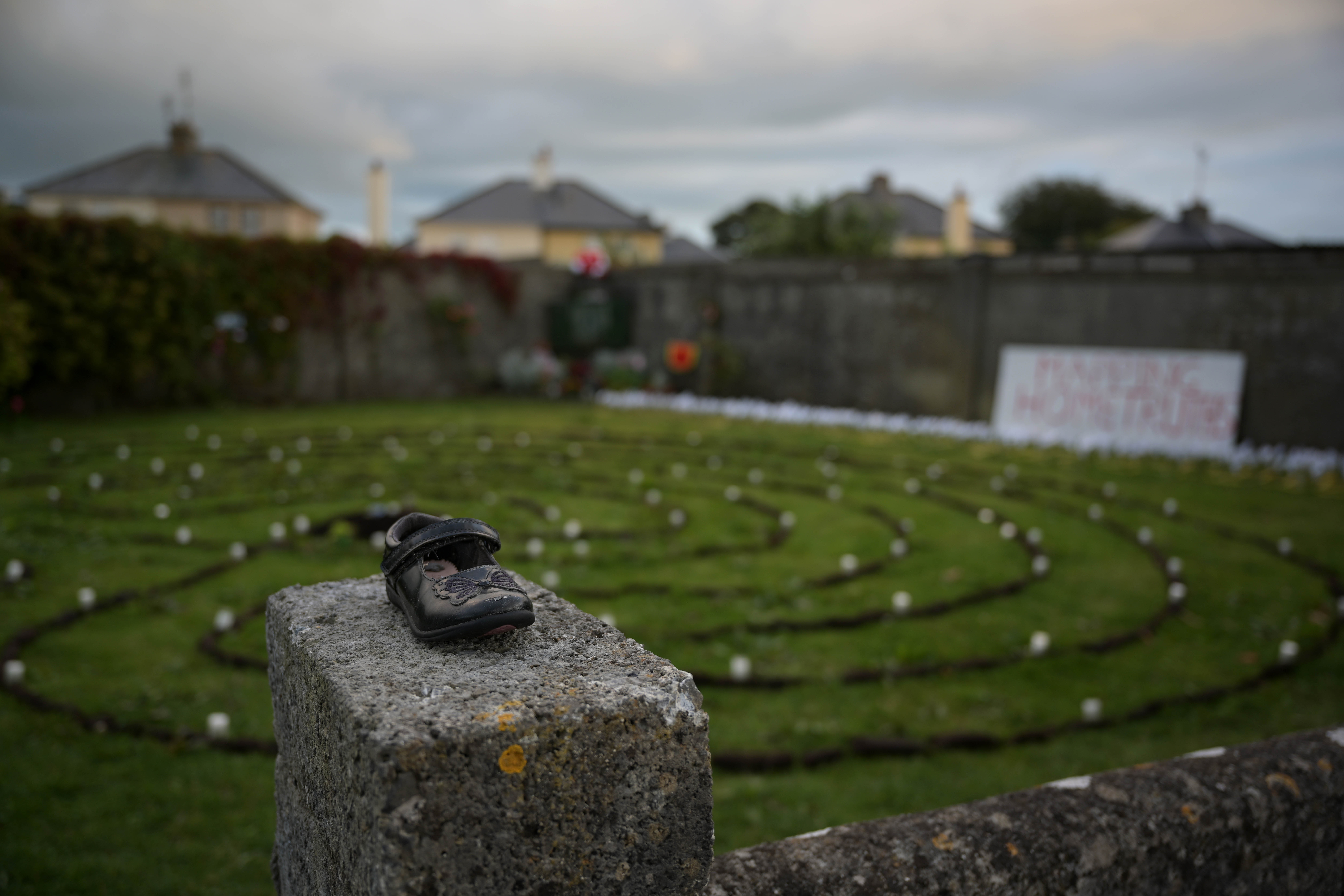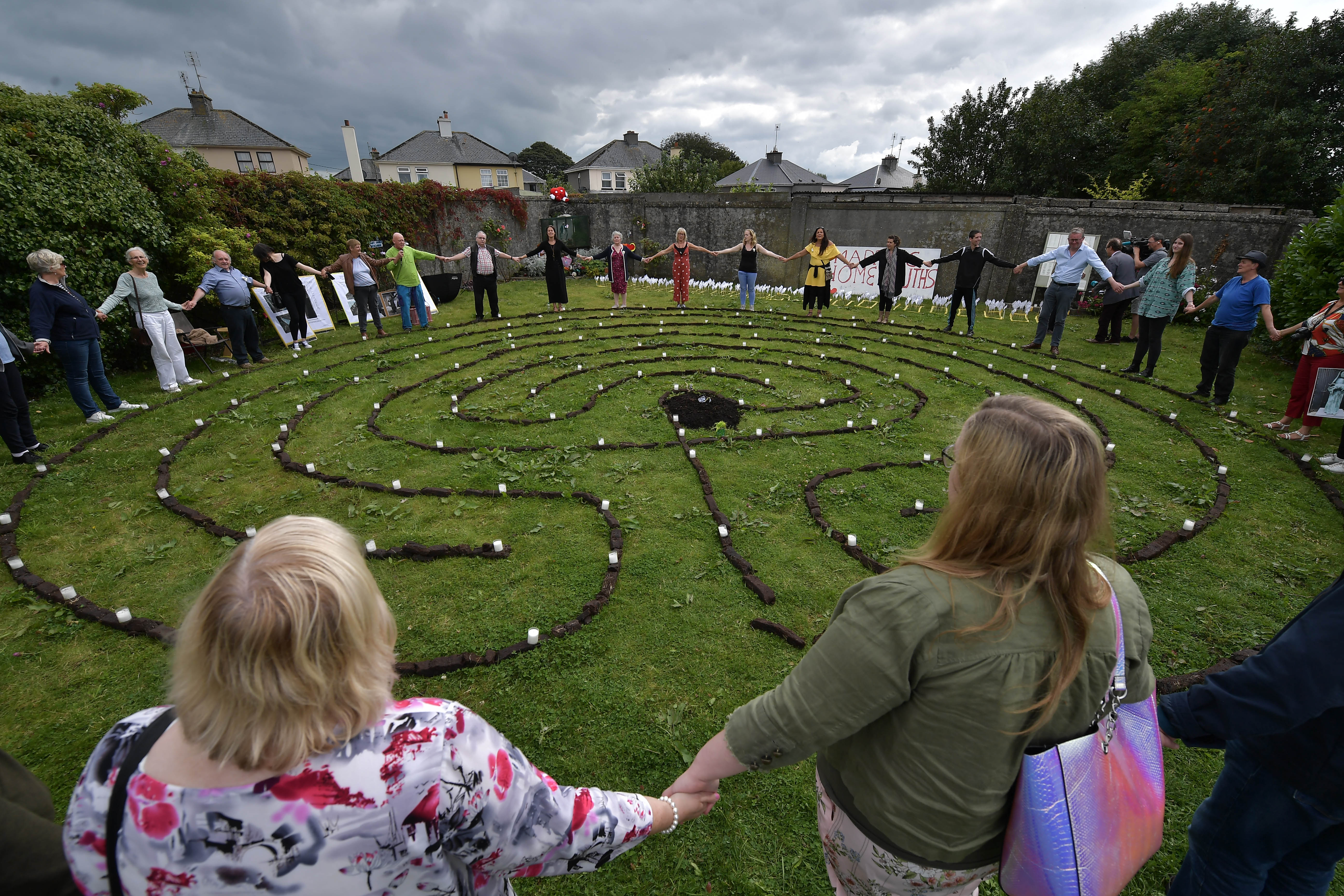
Infant and baby shoes are hung along the playground fence as a vigil is held at the Tuam Mother and Baby home mass burial site, Tuam, Ireland, August 25, 2019. /Getty
Infant and baby shoes are hung along the playground fence as a vigil is held at the Tuam Mother and Baby home mass burial site, Tuam, Ireland, August 25, 2019. /Getty
Unmarried mothers and their "illegitimate" children were subjected to deadly discrimination in Ireland's so-called mother and baby care homes between 1922 and 1998, a new report by the country's Mother and Baby Commission revealed on Tuesday.
A total of 9,000 newborns, infants and young children died in 18 state-funded Catholic-run care homes under investigation – about 15 percent of approximately all 57,000 children who were in these institutions, the report said.
Of children lost and never 'found'
Describing the high infant mortality rate as the most "disquieting feature" of these institutions, often shrouded in secrecy, the five-year government probe found that "the death rate among 'illegitimate' children was always considerably higher in care homes."
"In the years 1945-46, the death rate among infants in mother and baby homes was almost twice that of the national average for 'illegitimate' children."
In a shocking disclosure, the report said: "In the years before 1960, mother and baby homes did not save the lives of 'illegitimate' children; in fact, they appear to have significantly reduced their prospects of survival."
The maximum number of deaths, 923, were associated with Bessborough home in Cork, southwest Ireland. The care center had the highest-recorded infant mortality rate in 1934, and the rate reached its highest levels in 1940s; in 1943, three out of every four children born in Bessborough died, the report said.
The inquiry discovered the "Bessborough did not keep a record of infant burials and the burial location of the majority of children who died there is still unknown."
The probe was ordered in 2014 after a study by a local historian in the town of Tuam suggested that "796 children, from newborns to eight year olds, were dumped in a septic tank near a Catholic-run home for unmarried mothers."

Nearly 800 babies and young children who died in the Tuam Home run for unmarried mothers are buried at the Tuam Mother and Baby home mass burial site in unmarked graves, Tuam, Ireland, August 25, 2019. /Getty
Nearly 800 babies and young children who died in the Tuam Home run for unmarried mothers are buried at the Tuam Mother and Baby home mass burial site in unmarked graves, Tuam, Ireland, August 25, 2019. /Getty
Plight of the 'fallen women'
The report, spanning 3,000 pages, lays bare the trauma some of these 56,000 "fallen women" endured in these "overcrowded" care homes.
"Many of the women did suffer emotional abuse and were often subjected to denigration and derogatory remarks. It appears that there was little kindness shown to them and this was particularly the case when they were giving birth," it said, adding that these mothers had no prospects of keeping their children.
Some mothers told the probe panel that they were made to do "physically exhausting work up to the verge of giving birth, or very soon (as little as two or three days) immediately afterwards."
According to the report, "One new mother gave an account of being shouted at and taunted while she was cleaning, post-birth stitches bursting, the cold stone of floor and staircase she had already cleaned now flooding with her blood."

Relatives and supporters hold hands with survivors as a vigil is held at the Tuam Mother and Baby home mass burial site, Tuam, Ireland, August 25, 2019. /Getty
Relatives and supporters hold hands with survivors as a vigil is held at the Tuam Mother and Baby home mass burial site, Tuam, Ireland, August 25, 2019. /Getty
Of sin and stigma
Aged between 12 and late 40s, these unwed mothers – from farm workers to unpaid domestic helps – were labeled as "temptresses and blackmailers" of "simple boys led astray by sexual instincts."
According to the report, "An 'illegitimate' birth could destroy the marriage prospects, not just for the woman who had given birth, but for her siblings, hence the pressures to keep it a secret by sending her to a mother and baby home."
"In many cases, they were cut off from the world and some were assigned a house name," and they were "dissuaded from sharing their stories with their fellow residents, because of concerns to protect their privacy," the report said.
Predicament of those left behind
The commission report also concluded that left-behind children "received inadequate care."
A woman who was born in one of these care homes in 1950s spoke to the commission. She recalled the conditions as "horrific," saying that "she had never had shoes, had slept in a bed with five other girls without pillows, sheets or blankets, (their bedding being old coats) and had been slapped by a nun for the crime of spilling milk from its container."
The investigation team quoted a former care home resident recollecting her time in the mother and baby home as a child "who was destroyed from the cleaning products which afflicted her with 'terrible sores' on her skin."

Irish Prime Minister Micheal Martin will formally apologize to the victims and survivors for "decades of brutal cultural misogyny," in Dublin, Ireland, June 27, 2020. /AP
Irish Prime Minister Micheal Martin will formally apologize to the victims and survivors for "decades of brutal cultural misogyny," in Dublin, Ireland, June 27, 2020. /AP
Irish PM to apologize for country's 'dark chapter'
Irish Prime Minister Micheal Martin will formally apologize to the victims and survivors for what he called "a dark, difficult and shameful chapter of very recent Irish history," vowing to "provide financial recognition and laws to support excavation, exhumation and, where possible, identification of remains."
Ireland's Children's Minister Roderic O'Gorman said: "The report makes clear that for decades, Ireland had a stifling, oppressive and brutally misogynistic culture, where a pervasive stigmatization of unmarried mothers and their children robbed those individuals of their agency and sometimes their future."

